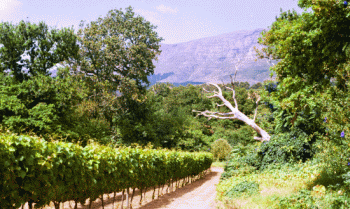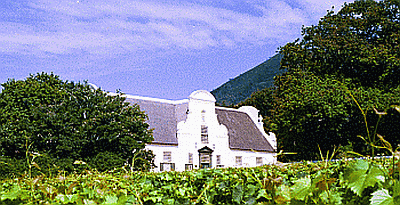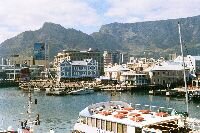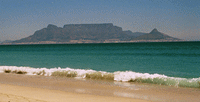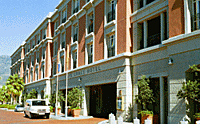

Visit the unique historic Cape Winelands
Here's my Cape Winelands Accommodation Page Read on! Here you'll find a useful introduction to our Cape Winelands with links to other pages and websites of interest. The late summer month of February is my favourite time of year in this region because the bunches of ripe grapes are being plucked from the vines by the gangs of pickers and transported to the crushing plants by tractor/trailer along the winding farm roads, leaving an unmistakeable musky aroma in the air. I regularly visit historic town such as Paarl (Pearl) which is home to KWV Bpk. (Ko-operatieve Wijnbouwers Vereniging van Zuid-Afrika Beperkt) the pioneer of co-operatives, started after the Boer war in 1918 by Charles Kohler to unite the struggling farmers and stabilise the Cape wine industry. It was a huge success and became a significant example of Afrikaner run enterprise in the following years. 
The first governor of the Cape Jan van Riebeeck planted grape vines in 1655 in the fertile valley below the eastern slopes of Table Mountain. He used cuttings shipped over from France, Spain and Germany. The first wine was produced in 1659. There were however initial problems due to the farmers' ignorance of the science of viticulture. Van Riebeeck was succeeded by Simon van der Stel in 1679 who was educated and knowledgeable in winemaking.
Van der Stel had discovered that the rugged Cape environment with its Mediterranean climate and winter rainfall, coupled with fertile soils was ideal for the healthy production of wine and he wanted a permanent supply for the ships of the VOC company. This resulted in the establishment of the Groot Constantia wine estate in 1685. Cape Town History In time, while owned by successive generations of the Cloete family (1778-1885) Groot Constantia wines became well known among the aristocracy and Royalty throughout Europe, and the old manor house on the estate (below) together with its collection of antiques and artifacts has since become a popular example of original Cape winelands tradition and Cape Dutch architecture.
Groot Constantia was just the beginning for Van der Stel. His main interest was to improve the level of wine farming as an example to the Dutch farmers and he travelled widely around the surrounding Cape valleys and mountains seeking fertile areas. Utilising the expertise of around 200 emigre French Huguenot wine farmers whom he had shipped over from Europe 1680 - 1690, he founded villages and established wine farms. The legacy of the French Huguenot settlers and their descendants made a permanent impression on the history of the Cape Province and South Africa.
The first region to be settled and farmed by the Huguenots was Paarl and this was followed by Franchhoek and Stellenbosch. The pioneer work and legacy of Simon van der Stel has resulted in the establishment of a major wine industry in the Cape Winelands and surrounding regions. There are now some 15 wine routes in different Cape areas each consisting of a number of member estates and farms. The largest wine route is that of Stellenbosch which comprises several co-operatives and many farms which are hundreds of years old. Franchhoek's wine farms are well known for their names which reflect their French Huguenot ancestry. Many of the larger cellars offer tours and wine tastings as well as restaurants with traditional menus. You'll also find farm stalls selling farm produce as well as traditional preserves and foods. The wine More information: The Winelands Looking for superior accommodation in the Winelands? Cape Winelands accommodation Return from this Cape Winelands page to |
Must See Pages
on this site
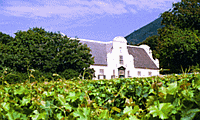

How to build income with SBI!









































